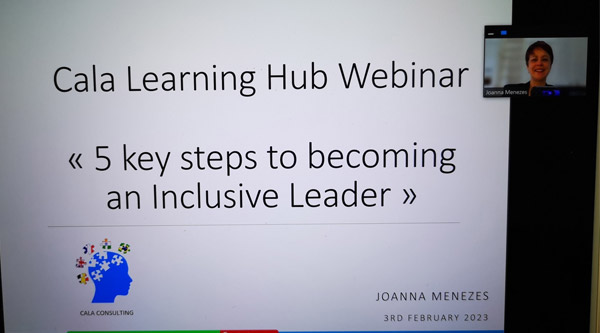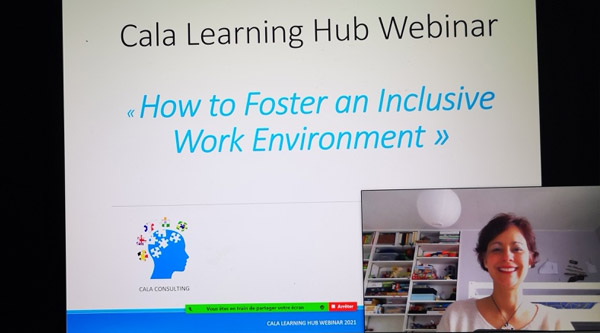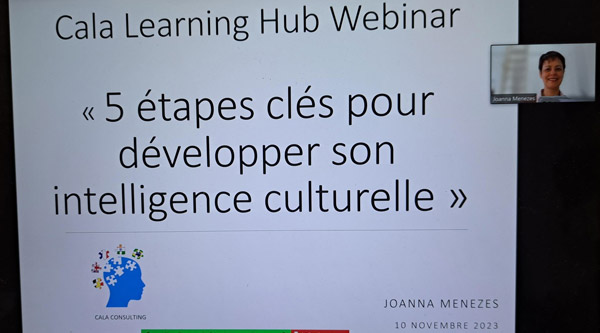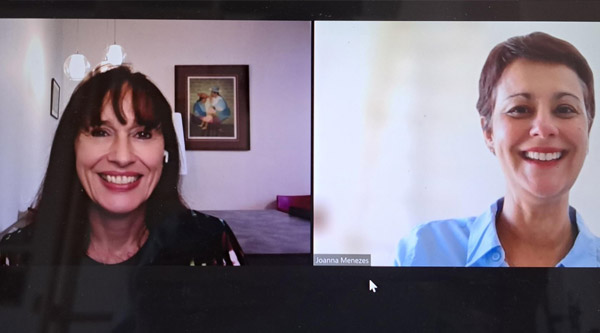A bit of neuroscience to start with, as we try out various optical illusions such as Shepard's famous tables. The verdict? We each see reality in our own way, but not as it really is", explains trainer and professional coach Nadège Dazy. ‘TThe culprit is our brain, which sees things in a partial way and with limited attention in a complex world’. Hence the cognitive biases that we all experience at work or in our personal lives... On 31st May 2024, the subject attracted around twenty participants to the new Cala Learning Hub webinar entitled ‘3 tips for examining and challenging your biases’.
What exactly are we talking about? Cognitive biases are systematic distortions in the way we process the complexity of the world and the information we receive. There are around 200 of them, and according to the American Buster Benson, the brain resorts to these cognitive biases essentially for four reasons:
- the need to act quickly
- an overabundance of information to process (the bias acts as a filter)
- tthe need for consistency between what we believe and what we do
- the need to memorise information, but you can't memorise everything...
A widespread perceptual bias: stereotypes
Stereotypes are preconceived images and simplified representations of individuals or groups. These stereotypes are based on a shared belief about the physical, moral and/or behavioural attributes that are supposed to characterise these individuals. For example: ‘Chinese people work hard’, ‘women are gentle’...
This bias has multiple consequences: discrimination (in recruitment, for example), assimilation (I end up being what is expected of me) or self-censorship (‘as a senior or as a woman, I don't allow myself to...’).
Another possible consequence is ‘stereotype threat’, i.e. the fear that an individual belonging to a negatively stereotyped group may feel when they risk confirming, through their performance or behaviour, the negative stereotype associated with their group. This fear, in turn, inadvertently leads them to confirm the stereotype. For example: ‘women are not as good at maths as men’.
Affinity bias: favouritism for one's own group
This is the systematic tendency to evaluate an individual or individuals from one's own group (endogroup) more favourably than an individual or individuals from another group (exogroup). ‘We unconsciously favour our endogroup and, conversely, we judge our exogroup more readily’, explains Nadège Dazy.
Typically, in a recruitment process, the perceived similarity creates a social proximity that biases the selection process: ‘He's just like me when I was younger! ‘She went to the same school as I did’.
Confirmation bias: reinforcing beliefs
Also widespread, this is the tendency to favour information that confirms existing beliefs or values. This is what causes us to seek out, interpret, memorise and give greater weight to the evidence that supports our opinions, while ignoring, rejecting or downplaying the relevance of the evidence that contradicts them.
3 keys to challenging your own cognitive biases
So how can we put all these biases into perspective and challenge them on an individual and company level?...
- Identify the moments when biases are most present and the emotions at play
It could be when you're stressed or tired, when you're hungry, etc. ‘So don't make important decisions at these times,’ advises Nadège Dazy. As for the emotions or needs at play, ask yourself the right questions: What's going on? Why am I afraid? Why does this make me angry?
- Getting out of your comfort zone
‘It's interesting to be confronted with new ideas and to stop automatically closing yourself off to anything that isn't in line with your ideas’, says the coach. The aim is not necessarily to change your mind, but to understand the opinions and views of others.
- Taking action
What specific actions have you put in place to challenge your biases? It's up to you to define at least one to take a small first step in this direction.
Interested in our webinars? Check out the programme for 2024 and sign up!
The next webinar will take place on 28th June 2024 and is entitled ‘Developing Positive Intelligence & Boosting Mental Fitness’.
Why not join our discussions!

Blog article written by Laure Blancard.







 Copyright © 2016 - 2026 - Cala Consulting
Copyright © 2016 - 2026 - Cala Consulting